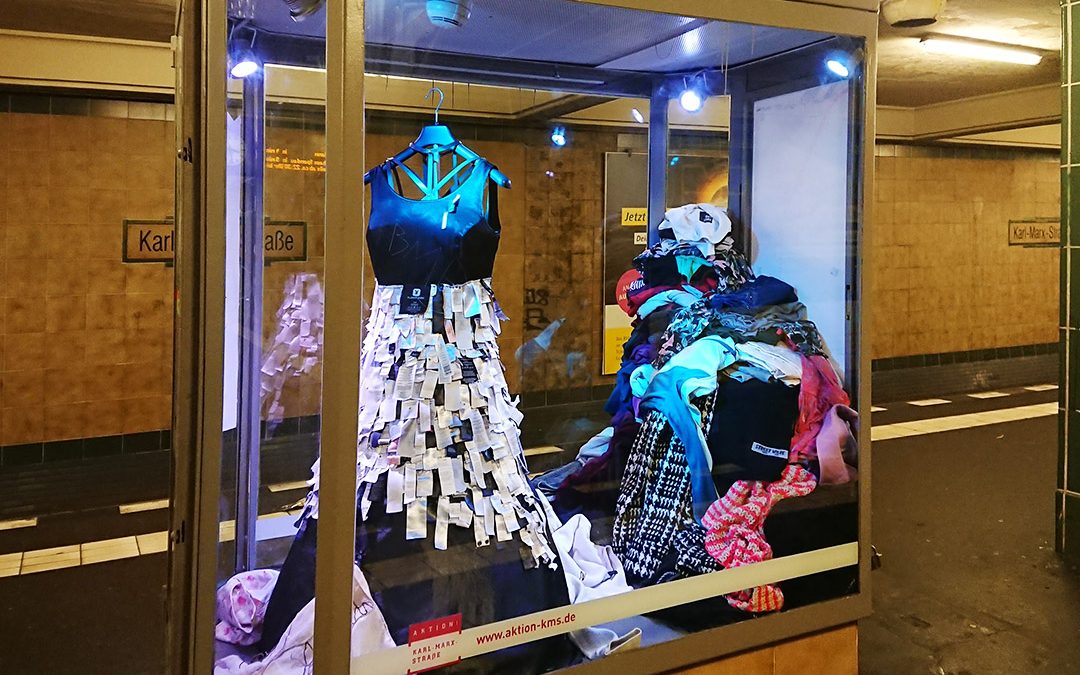
CMP – colonial matrix of power
CMP – the colonial matrix of power
Sculpture in progress | second hand dress | made-in labels
2021 | idea & concept: barbara caveng | realisation: Céline Iffli-Naumann
installation: Alice Fassina | Céline Iffli-Naumann | Lina Tegtmeyer
showcase U7 Karl Marx Straße until July 31, 2021
©Alice Fassina
Greetings from Uganda
a letter from barbara caveng
100% silk, a flowing floral summer dress - only 50 cents and it's mine. In converted currency, of course. At Kalerwe market on the outskirts of Kampala, I pay two thousand Ugandan shillings. The trader laughs, then kisses the banknote. This,he euphorically announces to the crowd gathered around a pile of clothes, is the first earning of the day.After all, it is already 2.30 pm. I make my way to the centre of the market and, squeezing through the crowds of people, quickly settle on three T-shirts:
A light green Adidas shirt, a shirt that says 'Straight Outta Kindergarten' and another one, advertising for 'SeCla Gerüstbau' in embroidered lettering, including a German mobile phone number. The construction company's lettering stretches white on black across the entire back of the shirt. The seller insists that the Adidas shirt is worth 8000 shillings, i.e. 2 €, the other two change hands for 1.5 € each.
Made in Bulgaria, made in China, made in Honduras, made in Turkey.
Second-hand clothing gushes like a stream of lava over the city and surrounding countryside. Sellers queue up in front of somewhat inconspicuous looking warehouses, stacked to the top with 45 kg bales of clothing, waiting to receive their goods: 380 pieces each of women's outerwear, vacuum-packed, in a plastic bag.
They guarantee survival.
SecondHand Ware | Kampala 2021
Imported from the US, Japan and Europe.
Since 2017, the government has been threatening to ban the import of second-hand clothing and has increased import duties. The 'Buy Uganda Build Uganda' campaign is designed to strengthen the local textile economy, the manufacturing sector as well as small and medium-sized enterprises. Its focus is on sustainability. Nevertheless, 95% of cotton continues to be shipped abroad. 'The quality of the second-hand products is better than what we can currently produce', explains the wholesaler in front of his vacuum-packed clothing castle, 'we can't even afford to think about quality'. 'The quality of the second-hand products is better than what we can currently produce', explains the wholesaler in front of his vacuum-packed clothing castle, 'we can't even afford to think about quality'.
This is a statement those that sell and those that buy unanimously agree on.
As of 8 June, Uganda has been in its second lockdown. It's been 42 days. The pandemic poses a twofold threat to people's lives: death from a Corona infection combined with rapidly deteriorating living conditions – where hunger and poverty eventually join forces.
When doing the laundry,a woman tells me that, she worries about how her family is actually going to survive..
Doing the laundry here means washing by hand. Electricity is not always available and certainly never a given. The second-hand clothes have been laid out to dry on the lawn.
The lives of the people in Bangladesh, Vietnam, China or elsewhere on this planet, who are sewing around the clock to guarantee the continuous supply of fast fashion and the lives of those – for example in Uganda – who wear the shed-off clothing of European consumers who conveniently order them in online shops only to get rid of them again, are put at risk – due to global economic interests and thoughtless consumers.
The nation’s tailors are sitting at their pedal-powered sewing machines made by Singer or are working in the dim light of their rooms. The machine is a real beauty: Black with golden lettering and curved ornaments – an inheritance of British colonialism: the colonial past has seamlessly carried over into our postcolonial modern society. The second-hand clothes flooding Uganda and their resulting socioeconomic consequences damage the country and its local textile industry and manufacturers – which, without electricity, will never be able to compete with the international textile industry.
Mpigi and Kampala, Uganda | 06.29.2021
barbara caveng is currently - June 7 until July 18 - in Uganda as a participant in the ifa 'artist contacts' programme. Her work encompasses the trade of second-hand textiles and the practice of textile care, as well as the production of clothing by local tailors and designers.

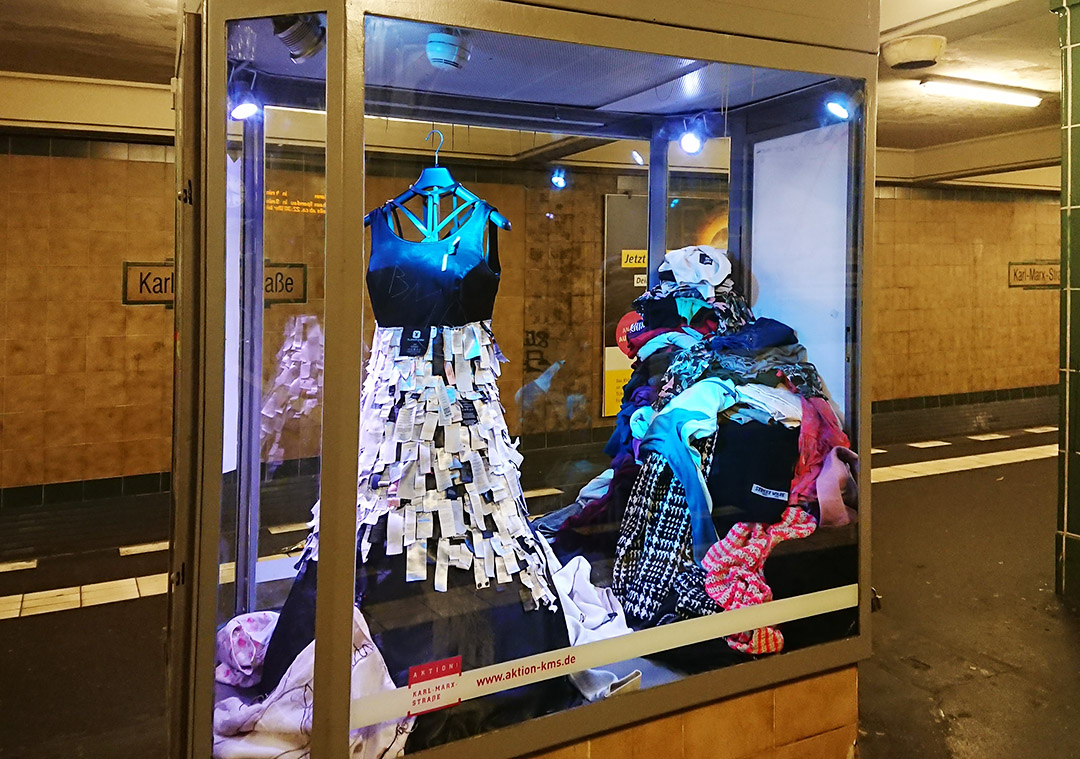
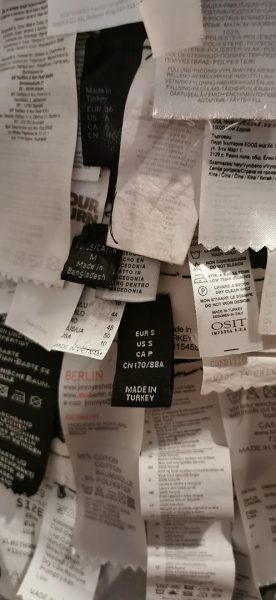

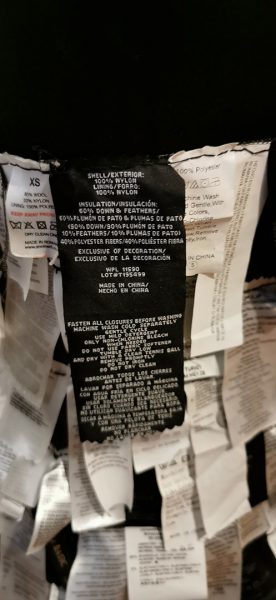
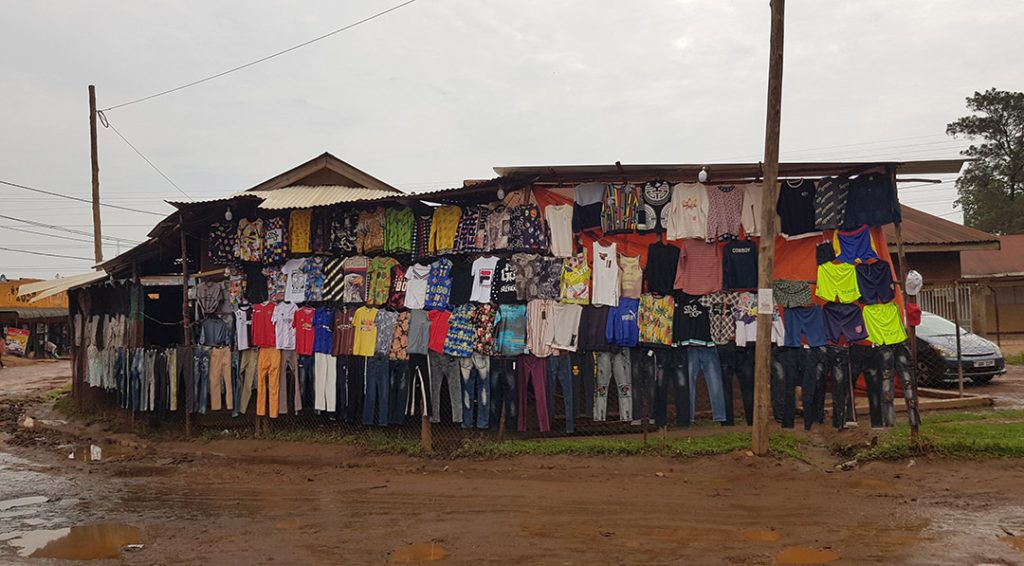
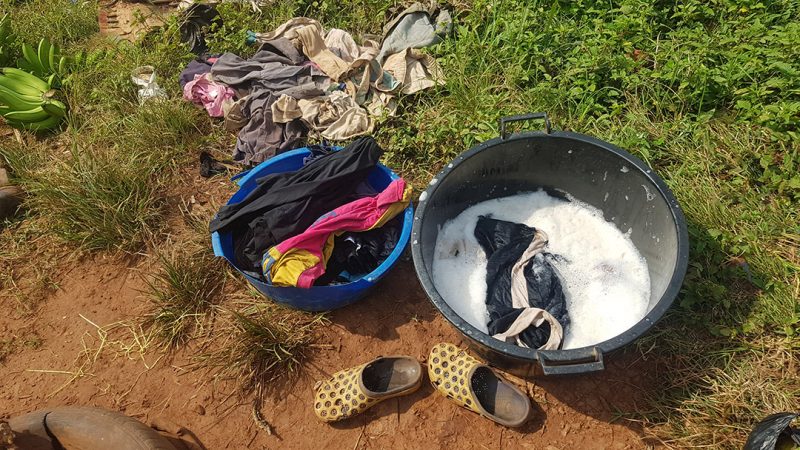
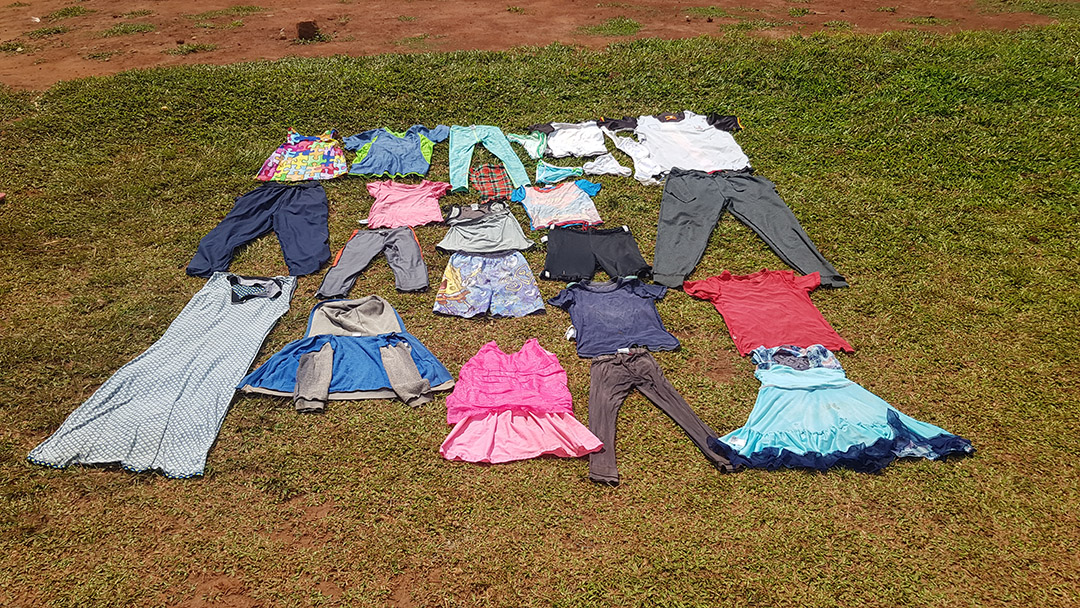
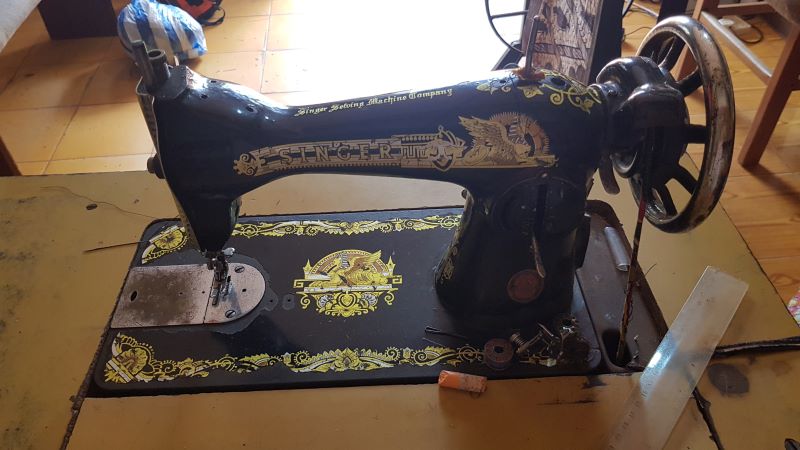
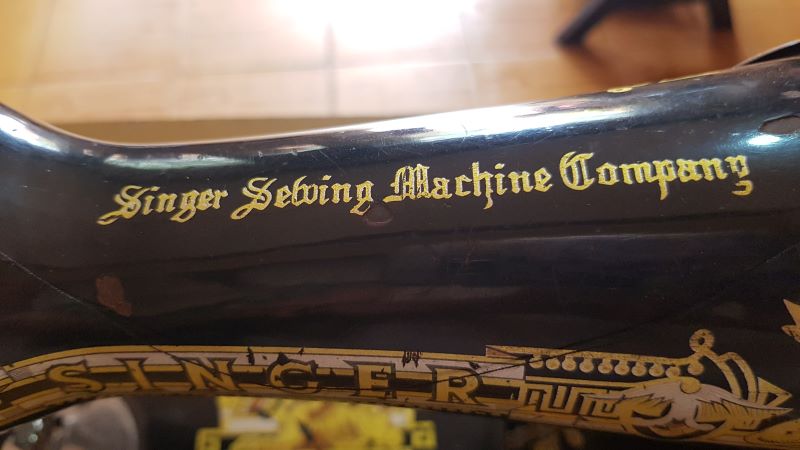
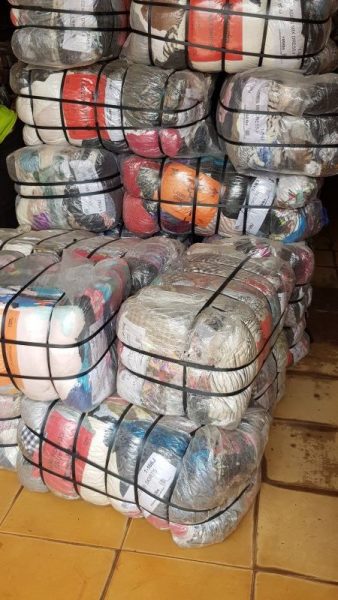
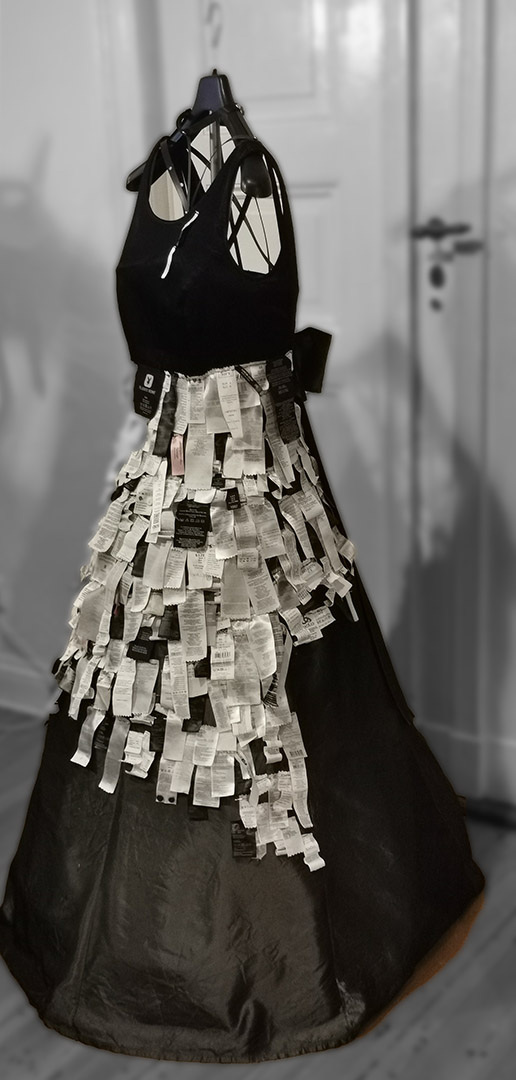
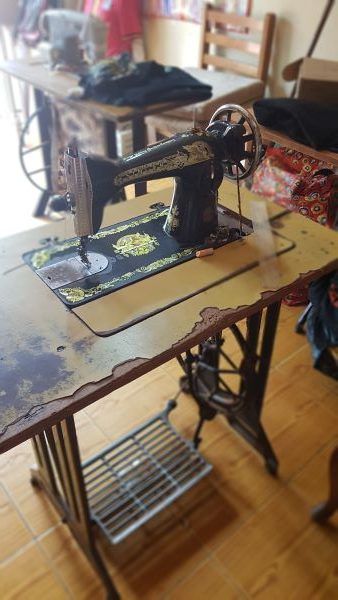
Recent Comments